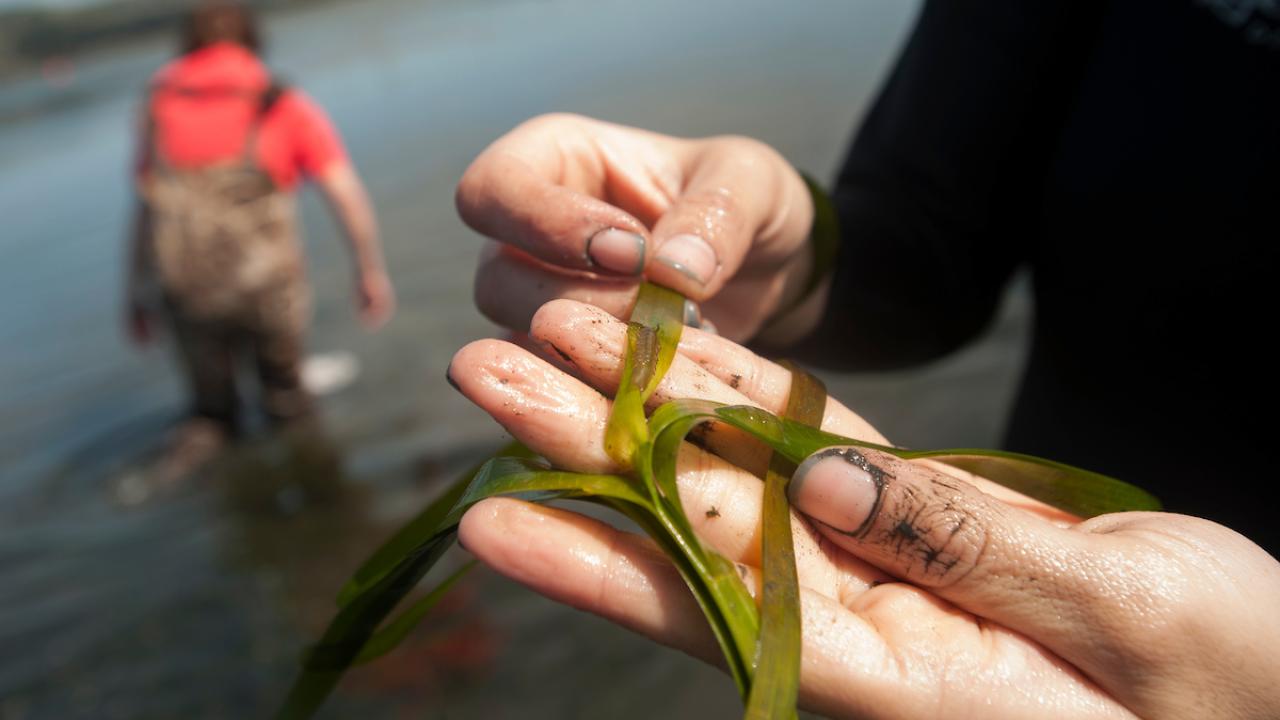Climate change is heavy and can often feel demoralizing. I feel this to my core on many, many days. This Earth Day, it’s important to remember all the doers, and the many possibilities.
Scientists presenting at last week’s Office of Research annual expo gave me a much-needed surge of inspiration as they described projects underway that are promising, tangible solutions for California and beyond. The research is supported by the Aggie Climate Action for Equity (ACE) grant program.
Seagrass solutions
“I come from a generation that didn’t cause climate change but inherited it,” said presenter Elisabeth Sellinger, a Ph.D. student working with Professor Tessa Hill, in a refreshingly candid intro to her project. “I’m told my generation is the last generation that can fix it. … I’m also someone with climate anxiety. I’m constantly worried about the future of the planet.”
She recognized that an empowering course of action she could take with her skills and interests is to help provide scientific data where important gaps exist—like in the ocean’s potential to store carbon.
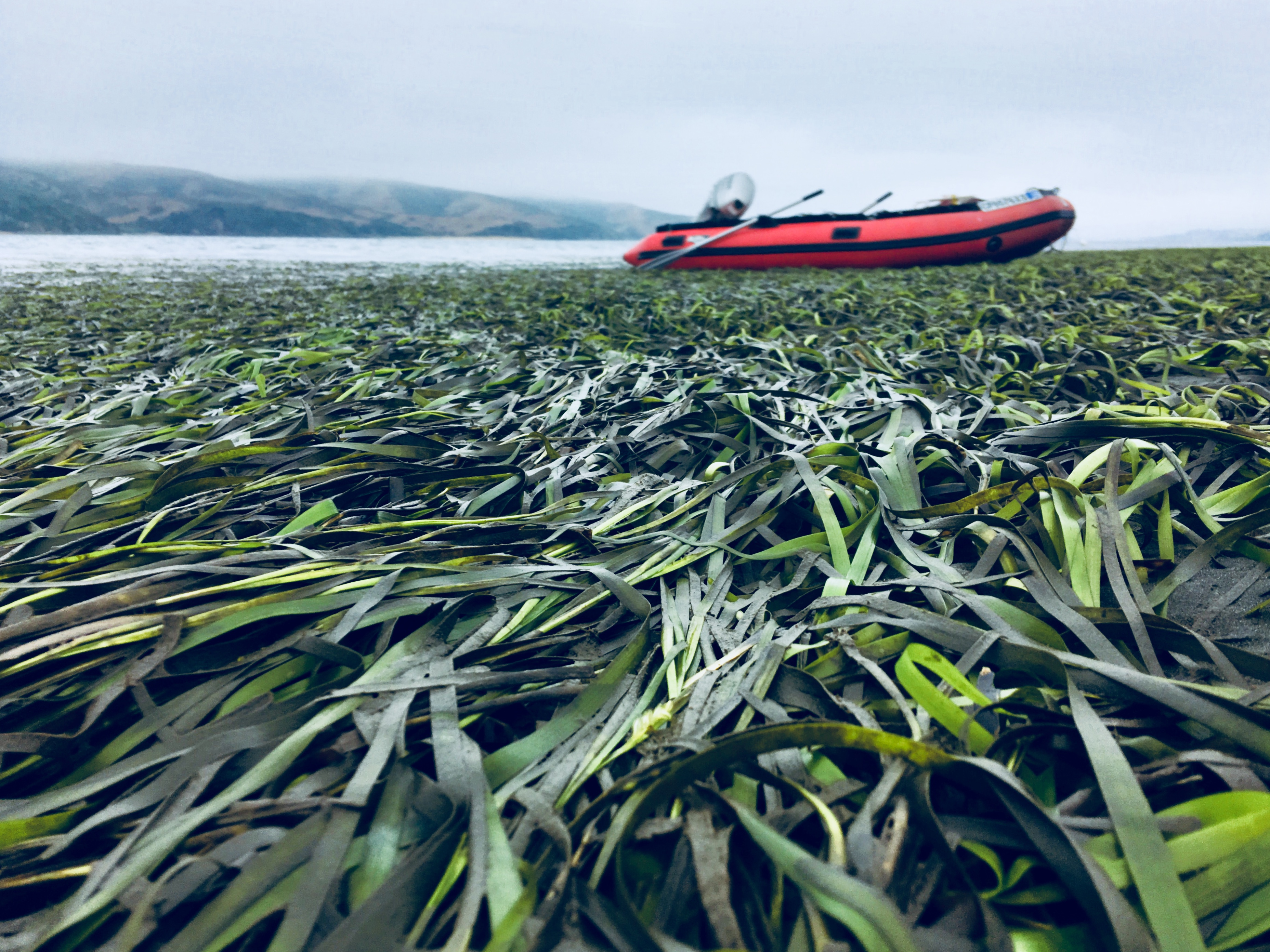
That’s why she’s working with Hill and others to quantify the carbon sequestration potential of seagrass. The ocean, she said, already stores about 30% of the carbon dioxide we emit. Seagrass meadows and salt marshes store about half of that, but those ecosystems are being degraded.
Hill and Sellinger are working in Elkhorn Slough and Tomales Bay to explore how seagrasses absorb carbon dioxide, transfer it to biomass, and store it. This will allow us to better understand the extent to which seagrass preservation and restoration can help fight climate change.
Fossil-free plastics
Plastic is a massive problem that’s found its way into every corner of our lives. What if you could make biodegradable, all-natural plastic out of food waste?
Ruihong Zhang, professor of Biological and Agricultural Engineering, is developing biodegradable plastics derived from cheese whey permeate, a cheese-making byproduct that is normally thrown away.
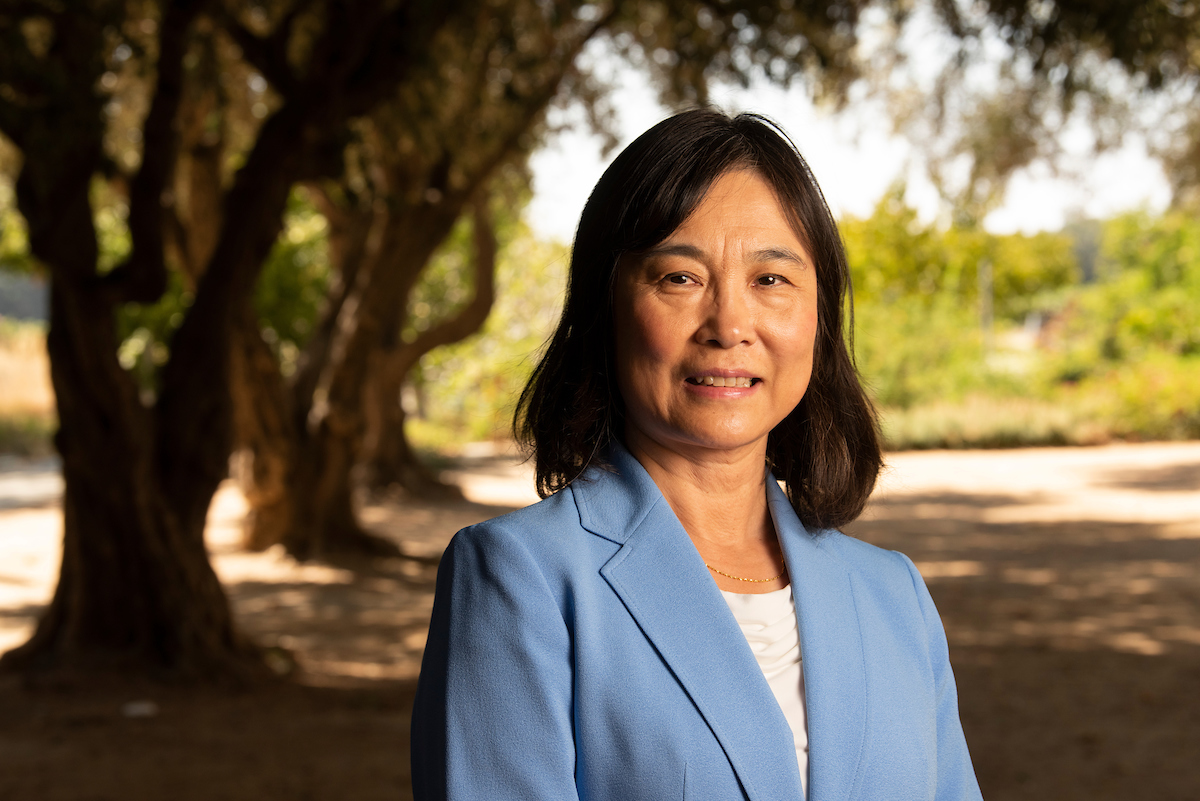
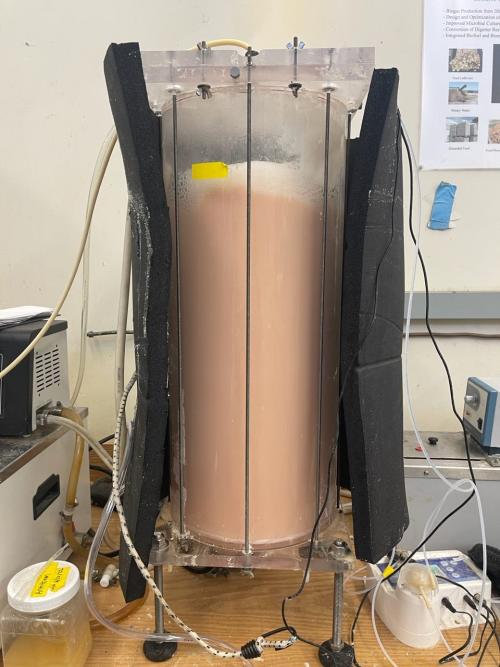
“My project develops technology to convert all of those leftovers, including cheese waste, into bioplastics that will be used to make biodegradable packaging material,” Zhang said.
How? Her research is using highly efficient microbes that take up sugar and form biopolymers (PHA). The scientists extract the biopolymers to make biodegradable plastic.
Biodegradable plastics are already being used at small scales, but they remain expensive.
“That’s where my research comes in,” Zhang previously told the Office of Research. “We can produce PHAs at a competitive cost through a new process and technology.”
A new mix: Pistachios, not peat
Peat moss is widely used to condition soils and gardens, but mining it releases millions of tons of carbon dioxide to the atmosphere, in addition to degrading the environment.
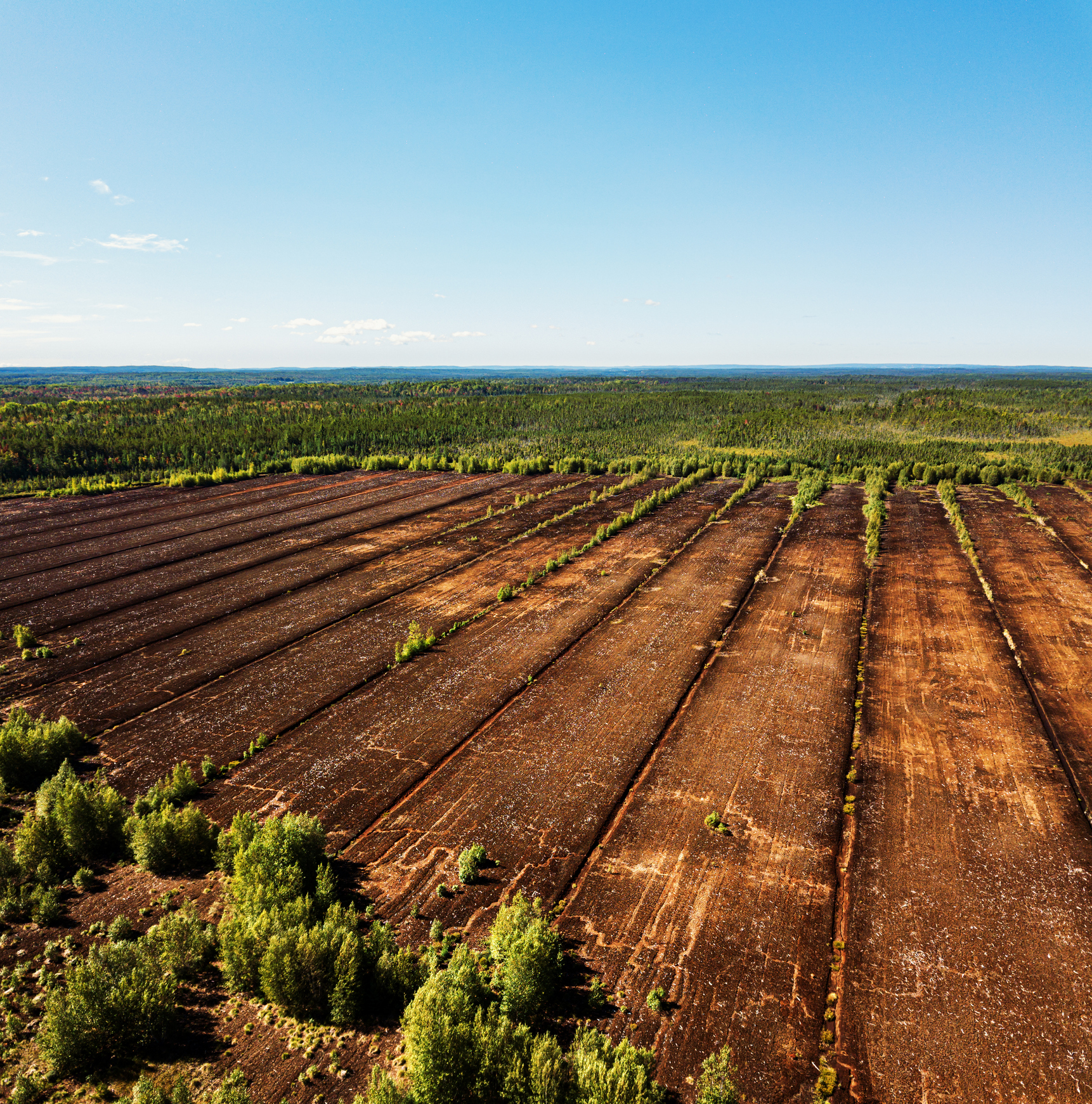
United States consumers bought 90 percent of Canada’s 2021 peat exports, according to presenter Jackson Gross, a Cooperative Extension Specialist in the Animal Science department. His project seeks a more sustainable alternative already grown in California and—again—is a byproduct of agriculture: Pistachio shells.
He’s already been at work testing a pistachio shell-based soil mixture, which has been found to increase production of crops tested, like lettuce, tomatoes, cucumbers and more. Their ACE grant is helping to evaluate the nutritional components of this soil.
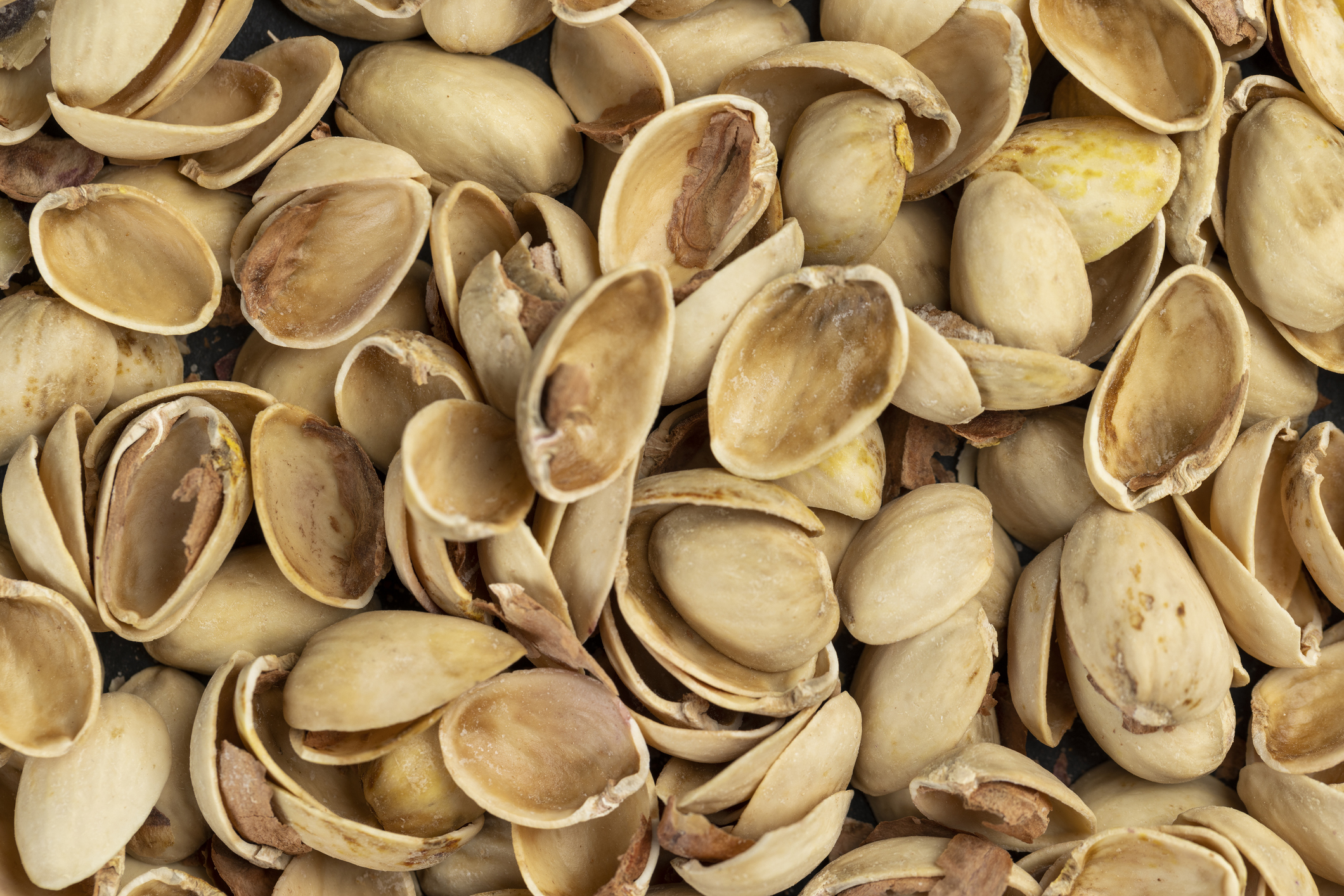
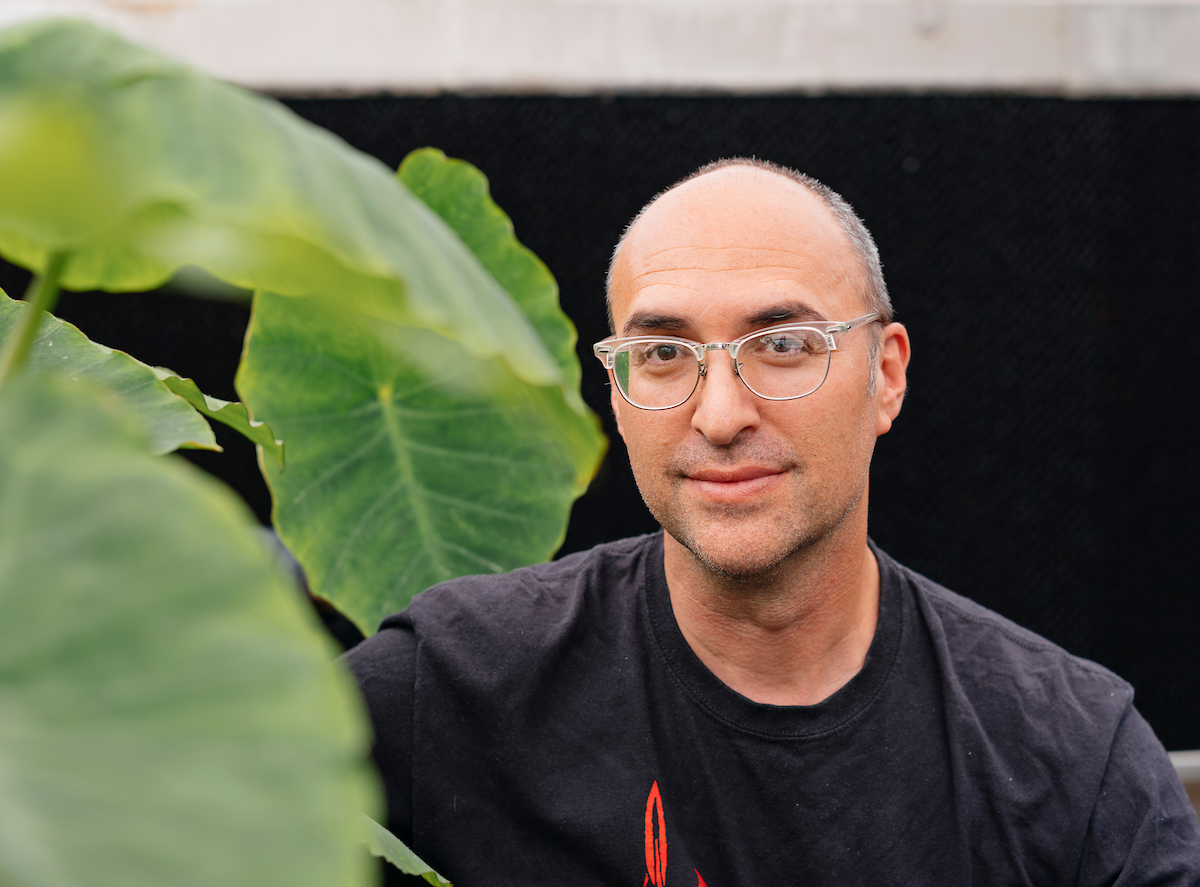
“We hypothesize that our pistachio-based soils will reduce fertilizer requirements, increase our yield, and also increase the nutritional content of our food crops,” said Gross.
Wildfire-resistant housing
Engineering Professor Michele Barbato, director of the Climate Adaptation Research Center at UC Davis, continues his work to create wildfire-resistant housing through an ancient material –earthen blocks—engineered with modern science.
Such materials could be used to build affordable, sustainable, unburnable housing—a growing need in California, where major insurance companies have largely stopped writing fire and new home-insurance policies due to fire risk.
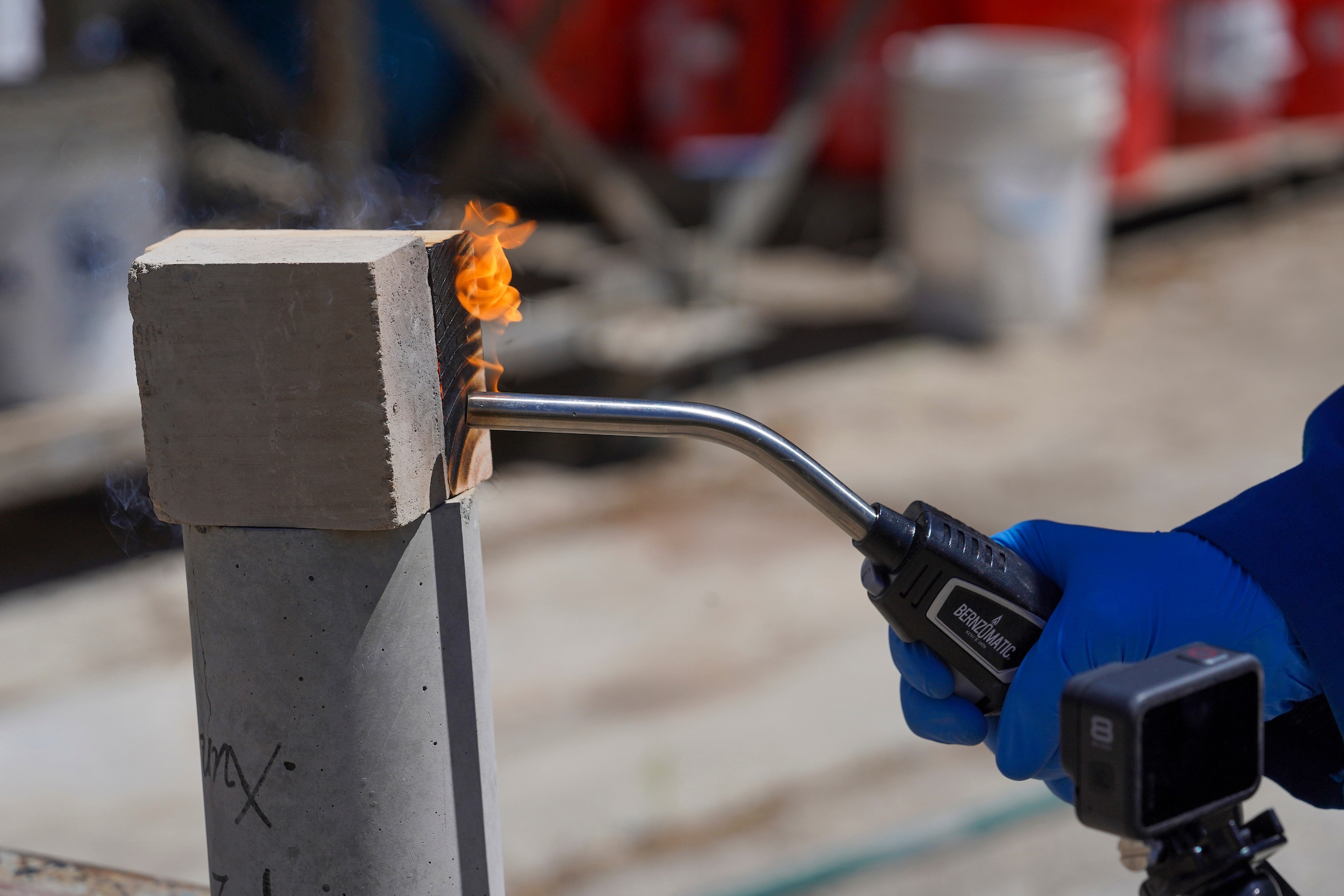
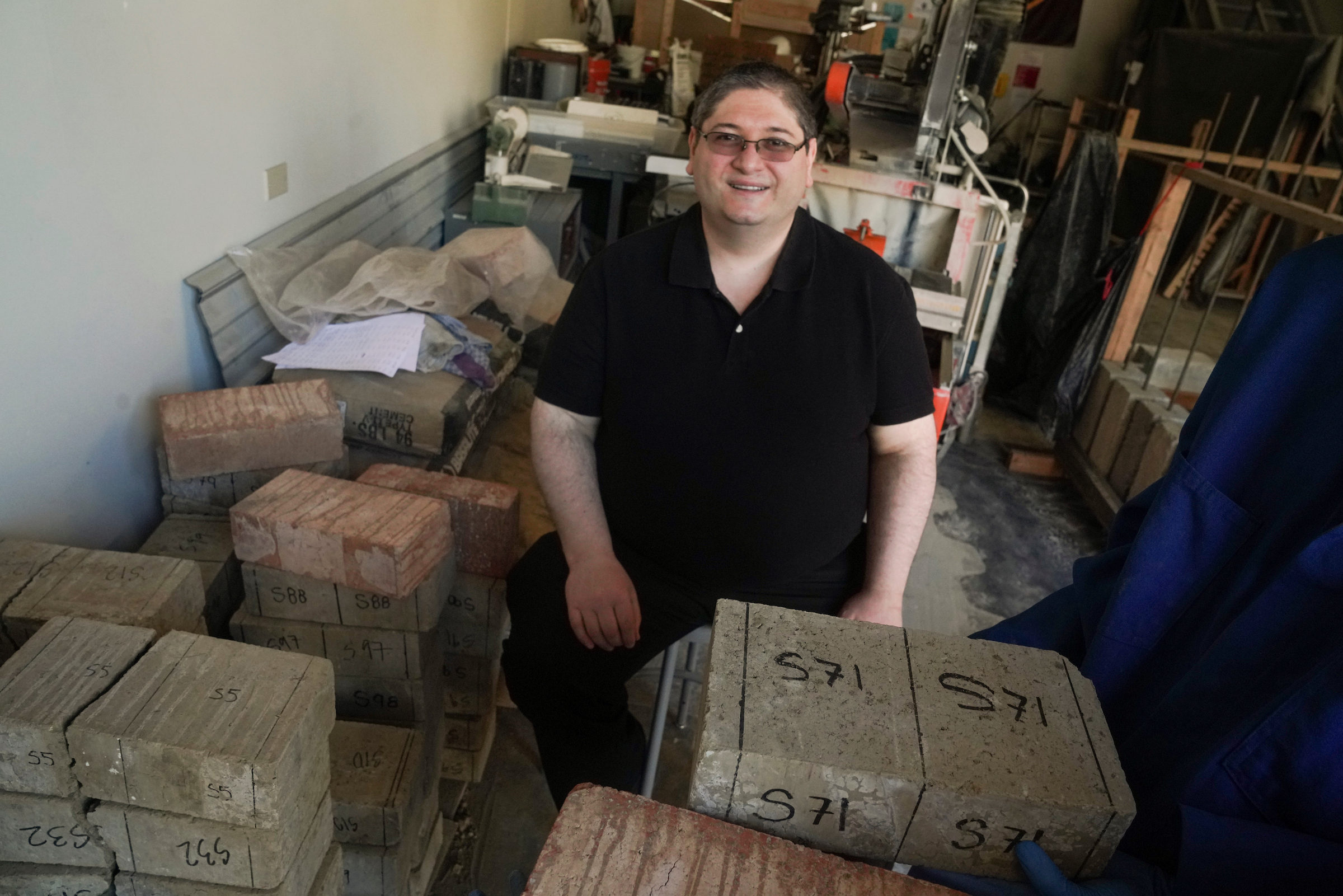
Barbato’s lab has already shown that the blocks can withstand wildfire, as well as hurricanes and tornadoes.
“We need climate-resilient housing that is affordable for everyone,” Barbato told the audience. “With this grant, we want to bring down the cost of construction by 50 percent.”
Fire stewardship support tool for tribes
Fire lighting is part of the solution for ongoing wildfire issues in California, both through prescribed burning and through cultural burning—practiced for thousands of years by Indigenous people, said assistant researcher Nina Fontana. Low-intensity fire has been shown to reduce wildfire risk 60%, she noted.
Fontana is working with Native Studies Professor Beth Rose Middleton Manning to develop a fire stewardship decision support tool for tribes in California.
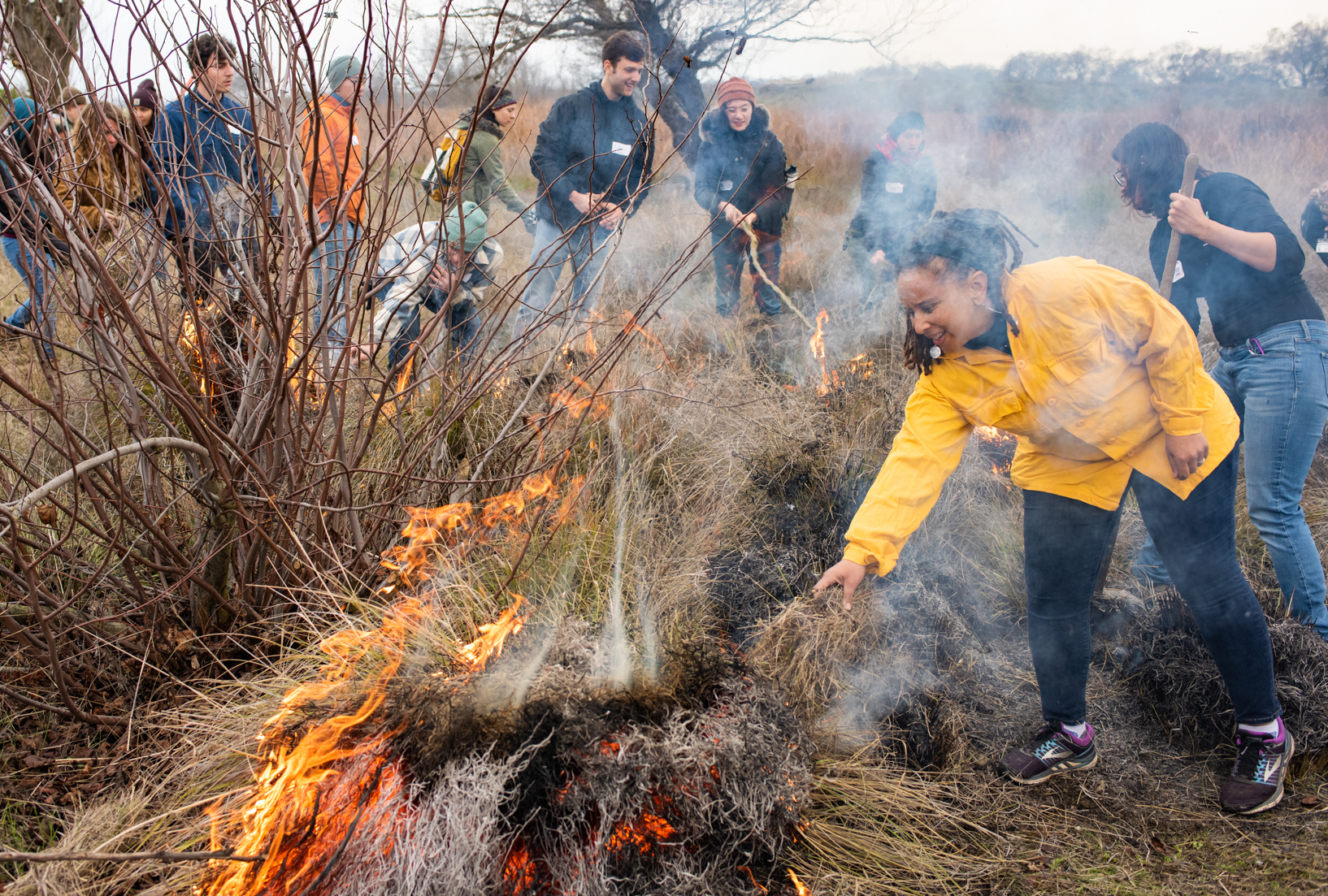
“Tribes have small land bases but large ancestral homes,” Fontana said. “So most of California’s land is divided between federal land and private ownership.”
That means tribes have to work across different agencies to apply the practice.
The project’s solution is to create an accessible, geospatial, fire-decision support tool, working with local tribes and First Nations people in Canada to implement cultural burning across jurisdictions. They are partnering with First Nation’s Emergency Services Society to assess data, define community priorities, plan actions and assess outcomes.
And more
Additional projects include work to develop more efficient technology to reduce methane emissions from dairy farms, as well as learn how to more efficiently harvest solar energy—and food—from greenhouse crop production.
Aggie Climate Action for Equity (ACE) grants are offered by the State of California and administered by the UC Office of the President, with UC Davis awards managed by Venture Catalyst under the UC Davis Office of Research.
Media Resources
Kat Kerlin, UC Davis News and Media Relations, 530-750-9195, kekerlin@ucdavis.edu
